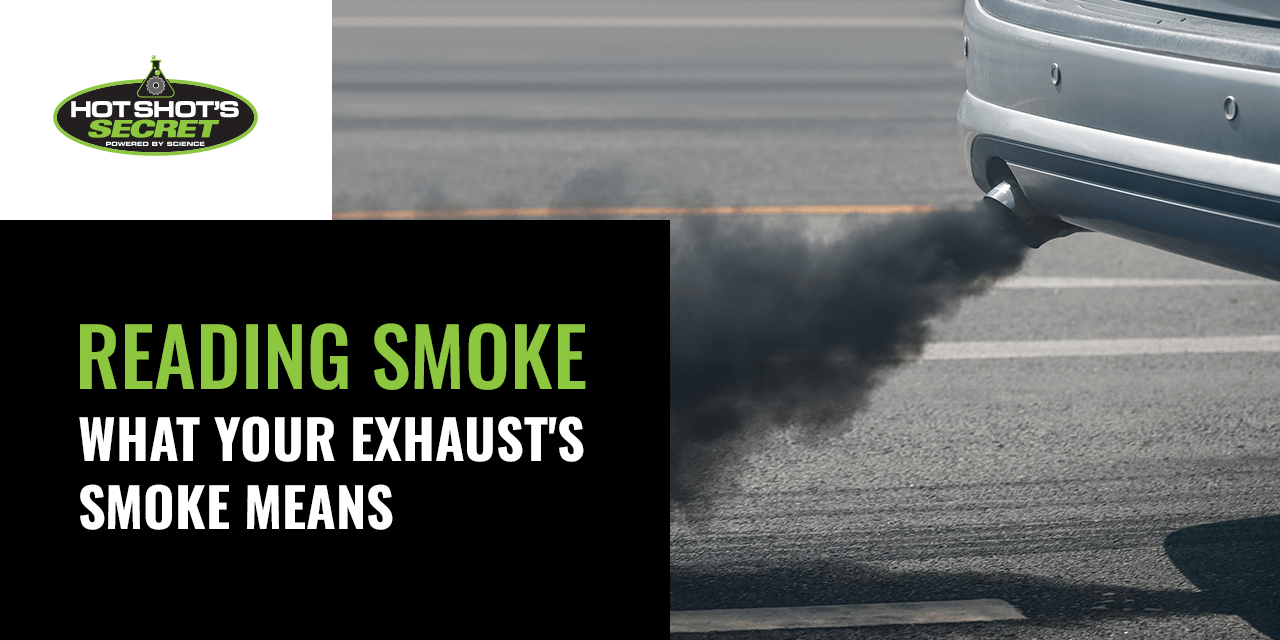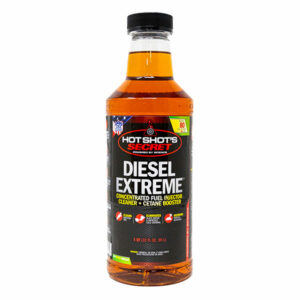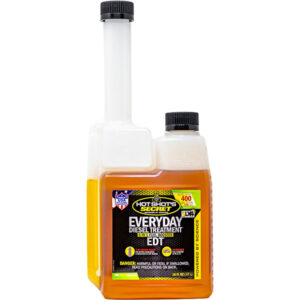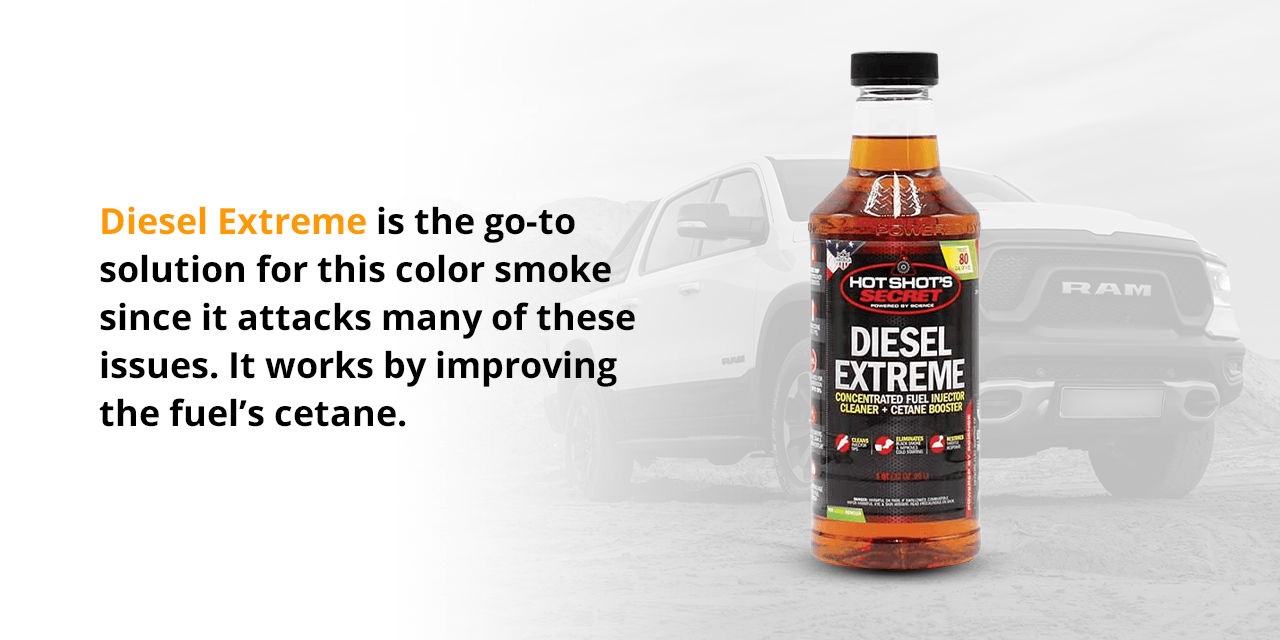
Excessive exhaust smoke can indicate your diesel needs attention. While smoke coming from a diesel engine is a common sight for many owners, excessive exhaust fumes may signal complications such as poor seals, stiction, clogged air filters or fuel injector damage. Check out our guide below to learn more about common types of smoke, their causes and how you can address the issue to eliminate the smoke or browse our products.
Why Is My Diesel Engine Smoking?
Diesel engines produce more white, gray, blue and black smoke than gasoline-powered vehicles, but you should pay attention to lots of smoke from an exhaust. Diesel engines emit more smoke than other vehicles because they operate under higher pressures, consume low-purity fuel and have variable fuel-to-air ratios.
Normal Circumstances
- Acceleration: Short puffs of smoke are typically normal when you accelerate an older diesel vehicle under load.
- Cool temperatures: White plumes of smoke are common when you first start a diesel engine in cold temperatures, but the smoke should dissipate when the engine is warm.
- Black smoke: Properly functioning diesel engines often emit small amounts of black smoke. However, it’s important to monitor how much black smoke comes from your engine at different loads and revolutions per minute (RPMs). Monitoring the black smoke that comes from your diesel exhaust provides insight into your engine’s fuel-to-air mixture. Too much black smoke means the ratio is imbalanced.
Complications to Address
If your diesel vehicle emits more smoke than the occasional white plume or small black puff, it may need cleaning or lubrication. High-quality additives enhance your engine’s performance to help combat and prevent excessive exhaust smoke.
Grey or Blue Smoke From Exhaust
If you’re noticing grey or bluish smoke coming from your engine, there could be a few possible causes. Let’s go over some of the most common causes of grey or blue diesel smoke and how you can fix the issue to keep it from coming back.
Causes of Grey or Blue Smoke From Exhaust
Blueish white smoke coming from the exhaust usually means that you need to take a look at the oil. Noticing a burnt-oil smell or seeing blue/gray smoke leave your exhaust on startup or heavy acceleration are common signs that you are burning oil. Other common causes of blue or grey exhaust smoke include poor seals on piston rings, valve seals, PCV valves, injector o-rings, or turbo seals.
How To Stop Grey or Blue Diesel Exhaust Smoke
There are a few low-cost solutions you can try to find the cause of the blue smoke and stop it from coming back. If you suspect you might be burning oil, Stiction Eliminator is an excellent place to start. It’s an efficient oil treatment for both gasoline and diesel engines. It works by removing the built-up sludge and varnish created by burnt oil and lubricating your engine. The stiction eliminator can also clean other engine components such as the oil pump, HEUI injectors, pistons and more. This high-quality oil treatment can help reduce friction in the engine, lower engine operating temperatures and make the engine run efficiently and smoothly. Stiction Eliminator belongs first on the list due to its money-back guarantee and ease of installation.
Another option you can try is to run a compression test. Many auto parts stores offer compression test units for rent, with your money back when you return the tool. It’s a straightforward test for the backyard mechanic and can help show the condition of your engine, enabling you to identify the cause of the smoke. You could also try replacing your PCV valves. These valves can sometimes go bad and suck oil into the intake, depending on the vehicle.
Be sure to consult your mechanic if you’re unsure of your next step and need help identifying the causes of the smoke.
White Smoke From Exhaust
White diesel smoke can sometimes be a sign that there is a larger issue with your engine. Here are some of the common causes of white smoke and how you can eliminate it:
Causes of White Smoke From Exhaust
White smoke may be a form of condensation if it is thin and quickly fades away. However, thicker, longer-lasting white smoke could be an indicator that you need to address a larger problem. One common cause is that your engine could have an issue with burning the coolant. This could happen because the head gasket has blown, the cylinder head is damaged or the engine block could be cracked.
White smoke can also be a sign of fuel passing through the engine and reaching the exhaust without having been burned. A few reasons for this issue could be an engine that isn’t hot enough to burn the fuel, low compression in the cylinder, issues with the fuel injectors, a clogged air filter, burnt-out glow-plugs, or the use of low-quality fuel.
How To Stop White Diesel Exhaust Smoke
Diesel Extreme is the go-to solution for this color smoke since it attacks many of these issues. It works by improving the fuel’s cetane. This improvement allows fuel to ignite properly at a more desirable temperature once it enters the combustion chamber. Diesel Extreme is one of the most powerful detergents on the market. It can also remove water, bacteria and break down sludge, completely cleaning your entire fuel system, from the tank to the injectors, increasing your diesel’s fuel economy, horsepower and more.
We also offer Gasoline Extreme for gasoline engines. It can help attack many of the common causes of white smoke by cleaning fuel injectors, pistons, pumps, valves and more, while also restoring fuel performance.
Another fix for white exhaust smoke might include adding an automatic pre-heater or a complete replacement of your engine, depending on the issue.
Black Smoke From Exhaust
Black smoke, also referred to as “rolling coal,” could have several causes that you may want to look into. Let’s go over some common causes of black smoke and how to fix it.
Causes of Black Smoke From Exhaust
A little black smoke is normal on a properly functioning diesel — in fact, some diesel owners add larger injectors to create more black smoke. However, it’s a good idea to keep an eye on the amount of black smoke at different RPMs and loads so that you will be able to tell if something is amiss.
Incorrect timing or air/fuel ratio, dirty injectors or common rail injectors staying open for too long, a worn turbocharger, dirty intake manifold or clogged air cleaner, low cylinder compression, poor quality fuel, or excessive carbon build up in the combustion chamber can all be common culprits.
How To Stop Black Diesel Exhaust Smoke
Stiction Eliminator is a great place to start when trying to get rid of black exhaust smoke. It will make sure the turbo internals, camshaft, and HEUI injectors are cleaned and lubricated. It can help restore compression, ensuring that the combustion chamber is at optimal performance.
For other situations, a dose of Diesel Extreme might be what you need to clean out those injectors coked with burnt fuel and get them firing like new. It’s also an excellent solution to use to clean the fuel system while simultaneously maximizing performance.
You can also try replacing your air filter, checking the intake manifold out, or fiddling with your aftermarket tuner. Be sure to ask a professional if you have little experience with these replacements. You should also keep in mind that running rich — having too much fuel — is always better than running lean — not having enough fuel. A lean air/fuel ratio can damage an engine in a short amount of time and can sometimes be the cause of black smoke from your diesel engine.
Symptoms of a Dirty MAF Sensor
A dirty mass airflow (MAF) sensor is another common cause of excessive exhaust fumes. A MAF sensor measures how much air enters the engine, helping the engine control unit (ECU) calculate the correct fuel injection amount for proper combustion.
If the MAF sensor accumulates dirt, debris and dust, it can send inaccurate measurements to the ECU and cause it to inject too much fuel into your vehicle’s engine. The extra fuel injection results in an excessively rich air and fuel mixture. Your MAF sensor may require cleaning if you notice:
- Black exhaust smoke
- Rough idling
- Pausing or stumbling during acceleration
- Reduced gas mileage
- Hard starting
- Engine stalling
- Reduced engine power
Is It Safe to Drive Your Car if the Exhaust Is Smoking?
No, it is not safe to drive your car or truck if you notice excessive or consistent smoke. Pull your car over in a safe location, and contact a professional mechanic for assistance.
Eliminate Smoke From Your Diesel Engine With Hot Shot’s Secret
At Hot Shot’s Secret, we understand that identifying the causes of smoke from your diesel engine can be tricky. That’s why our team is dedicated to providing you with high-quality products and solutions to help you eliminate smoke and treat the causes so it doesn’t come back. All of our products are backed by science and come with a money-back guarantee, helping you to narrow down the causes of smoke from your engine and potentially saving you money in the long run.
Start shopping our products online today to help reduce common engine problems and increase the longevity of your vehicle. Do you have any questions? Get in touch — we’d be happy to help.






